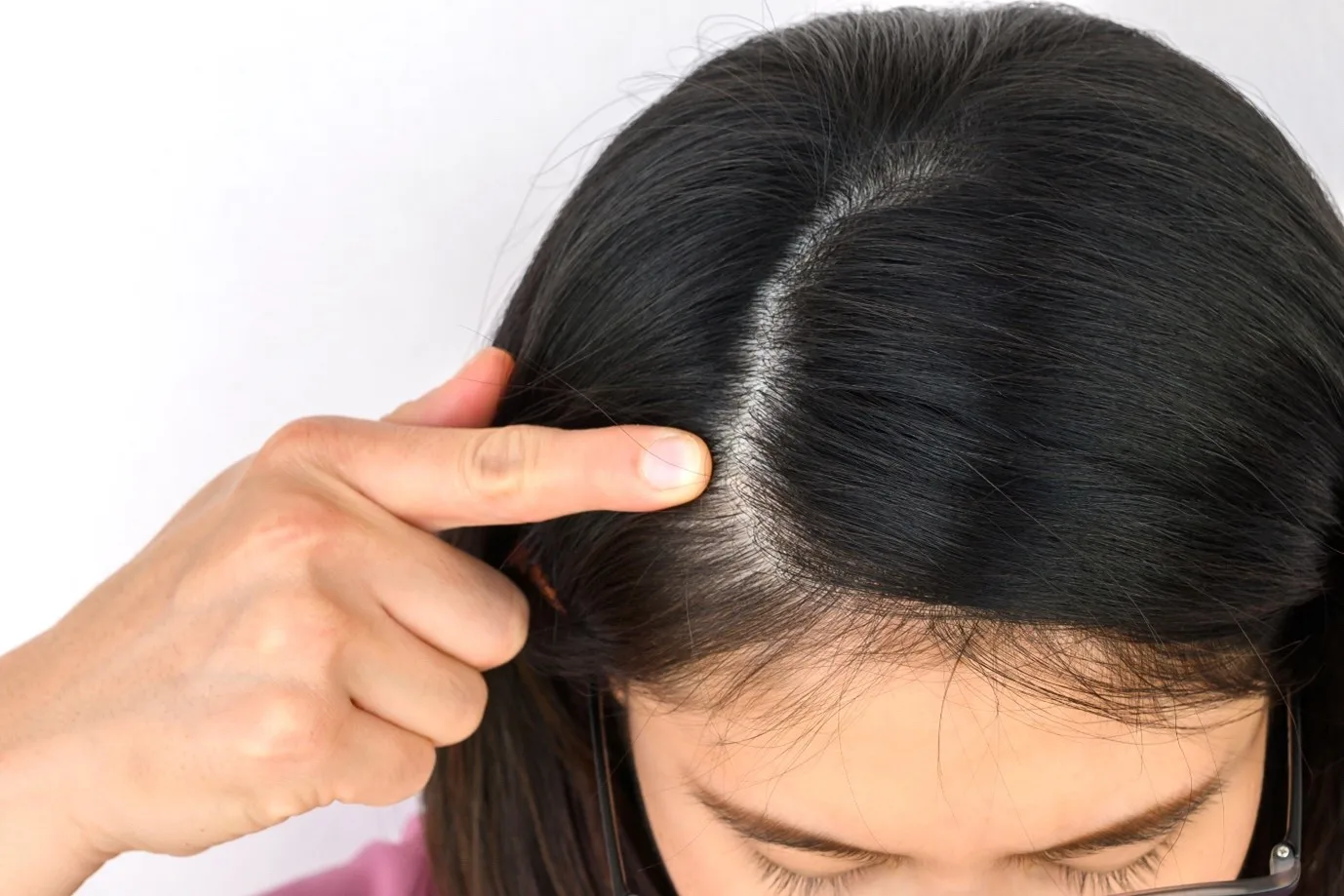GUIDE TO DIFFERENT TYPES OF SCALPS
Get our experts’ tips on dealing with different types of scalps, with our guide to the causes, symptoms, and treatment.

Just like everyone has a unique identity, they also have a unique ecosystem on their head. Your type of scalp is determined by various factors like your genetics, your hair-care regimen, your nutrition, your lifestyle, your geographical location, and even possibly your line of work. And so when you face some scalp problems, it can feel like you’re the only one in pain.
But almost half the population in the world suffers from some kind of scalp issue. The extent of the concern might vary, but there are similarities in the causes of your problems. We explore some of these types of scalps and the reasons that lead to them.
Dry Scalp
This is pretty simple to understand – a dry scalp is caused when your scalp dries out. Your scalp requires a certain amount of hydration to retain normal functioning. But when your skin’s moisture defences are damaged, it can lead to a sudden loss of moisture from your scalp.
This can happen for various reasons, like sudden weather changes, stress, or contact dermatitis due to products. The usual suspect for a dry scalp is over-washing of your head. When you wash your hair too often, it can strip away the natural oils from your scalp. These oils are vital in preventing moisture loss, as they form a barrier to the external environment. This leads to your scalp drying out, with the appearance of dead skin cells in the form of flakes. It can also affect the hair, making it frizzy and dry, as it fails to get sufficient moisture to keep it looking healthy.
The best option on how to treat dry scalps is to apply moisturising products, like Argan oil or Aloe vera. These products can restore the moisture levels on your scalp and create a protective layer to prevent any reoccurrence. These also contain properties that can help in clearing the build-up that causes dandruff. If you’re unsure about these products, you can also try the Head and Shoulders 2 in 1 Smooth and Silky, that combines a shampoo and conditioner to help restore dry and frizzy hair.
Itchy Scalp
The feeling of itchiness can ruin sleep for many people and is embarrassing in social situations as well. There could be various reasons for your itchy scalp – Lice, scalp ringworm, scalp psoriasis, allergic reaction to hair products, drying out of your scalp, eczema and even stress-induced.
But the most frequently seen reason for an itchy scalp is a breakout of dandruff. Research shows itching is actually the most common and most uncomfortable side effect of dandruff. As your scalp becomes irritated, it starts to feel itchy. And of course, your immediate reaction is to scratch. But scratching can damage an already delicate scalp, leading to more irritation, so it becomes a vicious cycle.
If the reason for your itching is dandruff, an anti-dandruff shampoo is probably your best answer on how to treat itchy scalps. Use the Head and Shoulders Neem, that clears the dandruff causing germs and prevents dandruff from coming back. Or try a clarifying shampoo for oily scalps once in a while to clear any build-up. You could also try home remedies such as Tea Tree oil or Apple Cider Vinegar, but always be careful with the quantities.
Sensitive Scalp
The scalp is the third most common area for sensitive skin after the hands and face, meaning it can become red and irritated easily. It might be due to a sudden change in the temperature but could also be a sign of a deeper issue. Sensitive scalps can be caused by skin disorders like dermatitis, dandruff, infections like folliculitis, lice infestation, stress - anxiety, and even exposure to the sun.
It is important to check the symptoms in order to correctly identify what form of sensitive scalp you have. Burning, stinging, itching, rashes, flaking, scaling, hair loss – these are all symptoms to check. A recurring reason for sensitive scalp is contact dermatitis, which is a reaction to some form of hair and scalp product. If it is due to dandruff, the symptoms are generally itching, redness and oily flakes.
If you want to understand how to treat sensitive scalps, it is vital to understand the underlying issues. If it is contact dermatitis, stop any new products you might have introduced. For dandruff, use an anti-dandruff shampoo. In addition, there’s plenty you can do to calm your sensitive scalp, from simple things like turning the water temperature down in the shower to choosing a shampoo that’s designed to be gentle on sensitive skin. You can also look at applying diluted essential oils, which can help in healing your scalp pain. If you’re unsure, you should visit the doctor and get a correct diagnosis.
Flaky scalp
Flaking is one of the most familiar problems faced by people across the world. It is basically the shedding of dead skin cells from your scalp. This happens on a regular basis with everyone, but in quantities that are not visible to you or anybody else. We only notice it when there is an excessive amount of flakes.
This is usually caused by dandruff or by a dry scalp. Dandruff is associated with an oily skin, where the fungus Malassezia Globosa breaks down the oil into acids that are reactive to the body. If you’re unlucky to fall into the category of people who are sensitive to this acid, your scalp reacts by shedding white-yellow oily flakes of dead skin cells.
If the shedding is related to a dry scalp, the flakes are smaller and whiter in colour. They don’t clump together on your hair like it happens with dandruff flakes. A key distinction between dandruff flakes and dry scalp flakes is the oily texture that is associated with dandruff. There is a certain amount of flaking with scalp psoriasis, eczema and contact dermatitis as well. It is important to get a correct diagnosis from a dermatologist.
Some home remedies might be the answer on how to treat flaky scalps, like Aloe Vera. It can moisture a dry scalp and contains anti-fungal properties that also helps with dandruff. You could also use anti-dandruff shampoos like the Head and Shoulders 2 in 1 Cool Menthol, that restores dry hair and leaves you free of dandruff flakes.



